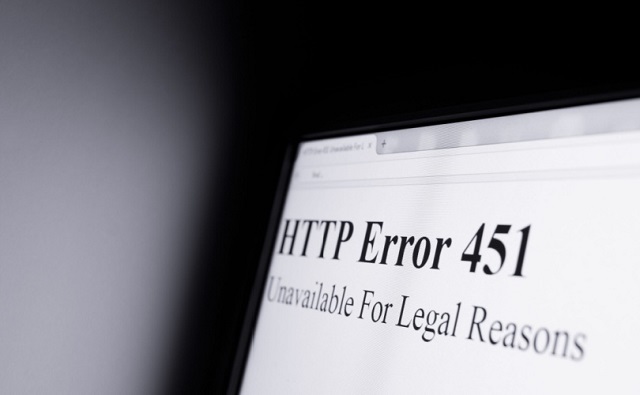National
Trudeau’s internet censorship Bill C-11 will not be implemented until late 2025

From LifeSiteNews
The delay is due to not having a framework to determine exactly how much streaming services will be forced to pay and also what kind of inclusion and diversity requirements will be mandated.
The implementation of a Canadian law passed by the Liberal government of Prime Minister Justin Trudeau that would mandate the regulation of online platforms such as YouTube and Netflix to ensure they meet government requirements, has been delayed until late 2025.
As reported recently by the Globe and Mail, Bill C-11, known as the Online Streaming Act that was passed into law in April 2023, was already supposed to have been implemented by the Canadian Radio-television and Telecommunications Commission (CRTC), the country’s broadcast regulator that is tasked with putting in place the law.
The law mandates that Big Tech companies pay to publish Canadian content on their platforms. As a result, Meta, the parent company of Facebook and Instagram, blocked all access to news content in Canada. Google has promised to do the same rather than pay the fees laid out in the new legislation.
However, the CRTC said it will not be until late 2025 that it will finally have a framework to determine exactly how much streaming services will be forced to pay, to be in line with mandates for more Indigenous and Canadian content.
As per the Globe and Mail, consultations will be held that will go into March 2026, on what kind of inclusion and diversity requirements will be mandated by the CRTC.
“The Online Streaming Act and the policy direction are both complex and multi-faceted, and we have announced an ambitious set of public hearings and proceedings to address all of the elements they contain,” CRTC spokesperson Leigh Cameron said.
“The CRTC anticipates that by 2026 it will have both had the opportunity to consult widely with Canadians and to have put in place the key elements of the new broadcasting framework,” he added.
Critics of recent laws such as tech mogul Elon Musk have said it shows “Trudeau is trying to crush free speech in Canada.”
This bill has been panned by other critics, such as Alberta Premier Danielle Smith, after in October 2023 the CRTC said that certain podcasters must “register” with the government by November 28, 2023.
Regarding Bill C-11, Canadian law professor Dr. Michael Geist warned last year that new powers granted to CRTC via Bill C-11 will not stop at “Web Giants” but will lead to the government going after “news sites” and other “online” video sites as well.
“Bill C-11 was never just about ‘web giants’ and the latest CRTC decision confirms that an extensive regulatory framework is in the works that is likely to cover podcasts, adult sites, news sites, and a host of other online video and audio services,” Geist observed.
Geist said that the “crucial” issue with Bill C-11 was always whether “CRTC exemption from registration requirements, which it sets at $10M in Canadian revenue.”
“That isn’t trivial, but additional exemptions for podcasts, social media, adult sites, news services, thematic services were all rejected,” he noted.
Geist observed that the CRTC in its new rules is effectively saying that a “podcaster or news outlet that generates a certain threshold of revenue must register with the government.”
Delay means Bill could be rescinded before it’s ever implemented
The Conservative Party of Canada, under leader Pierre Poilievre, was a strong opponent to Bill C-11. With polls showing them on track to win the 2025 election in a landslide, it is conceivable the bill may be rescinded before it’s ever implemented.
After the bill was passed by the Senate last year, Poilievre promised a Conservative government would “repeal” Bill C-11.
“The power-hungry Trudeau Liberals have rammed through their censorship bill into law. But this isn’t over, not by a long shot,” Poilievre tweeted.
“A Poilievre government will restore freedom of expression online & repeal Trudeau’s C-11 censorship law.”
Recent polls show that the scandal-plagued federal government has sent the Liberals into a nosedive with no end in sight. Per a recent LifeSiteNews report, according to polls, in a federal election held today, Conservatives under Poilievre would win a majority in the House of Commons over Trudeau’s Liberals.
Canadians are not happy as well with Bill C-11 or the other internet censorship laws put in place by the Trudeau Liberals.
Indeed, in light of the barrage of new internet censorship laws being passed or brought forth by Trudeau, a new survey revealed that the majority of Canadians feel their freedom of speech is under attack.
Trudeau’s other internet censorship law, the Online News Act, was passed by the Senate in June 2023.
The law mandates that Big Tech companies pay to publish Canadian content on their platforms. As a result, Meta, the parent company of Facebook and Instagram, blocked all access to news content in Canada. Google has promised to do the same rather than pay the fees laid out in the new legislation.
The Online Harms Act, or Bill C-63, will target internet speech retroactively if it becomes law. The law, if passed, could lead to large fines and even jail time for vaguely defined online “hate speech” infractions, and has also been panned by Musk.
Crime
B.C.’s First Money-Laundering Sentence in a Decade Exposes Gaps in Global Hub for Chinese Drug Cash

Port Coquitlam Mayor Brad West met with Biden Secretary of State Antony Blinken in 2023, to discuss Canada’s enforcement gap on fentanyl money laundering.
Chinese underground-banking conviction is a baby step in a jurisdiction that some experts see as North America’s center of gravity for transnational crime.
In a milestone that is staggering for its rarity in a jurisdiction regarded as a global nexus of Chinese transnational money laundering that facilitates fentanyl trafficking for Mexican and Iranian gangs, British Columbia’s anti-gang unit has finally secured its first money laundering sentencing in a decade.
On Monday, a B.C. Supreme Court judge sentenced 37-year-old Richmond resident Alexandra Joie Chow to 18 months in jail for laundering the proceeds of crime, following a six-year investigation that targeted illegal Chinese underground casinos and unlicensed money transfer businesses in Metro Vancouver. The court also ordered the forfeiture of cash and bank drafts seized during the probe, the Combined Forces Special Enforcement Unit of B.C. (CFSEU) says.
Chow’s case marks the first time in roughly ten years that a money-laundering investigation in British Columbia has actually resulted in a sentencing — a remarkable data point in a province where hundreds of billions have washed through casinos, banks and real estate, according to The Bureau’s estimates, yet almost no one has been successfully prosecuted for the underlying financial crime.
While Chow’s case in itself is relatively small in dollar terms, it followed the catastrophic collapse of the RCMP’s E-Pirate probe into a Richmond underground bank called Silver International, which was alleged to have laundered over $1 billion through a network of Chinese Triad leaders known as “Sam Gor” or “The Company” — a scheme that moved drug cash collected in Chinese diasporas across North and Latin America, cycling the funds back to hundreds of accounts in China, in part through lending gang cash to Asian high-rollers who washed massive sums through B.C. government casinos.
The collapse of E-Pirate raised significant concerns in Washington around Canada’s capacity to prosecute fentanyl money laundering and trafficking. Vancouver-area Mayor Brad West has told The Bureau that the failure of Canadian authorities to secure convictions in that case was explicitly noted in 2023 by senior figures in the Biden administration, including Secretary of State Antony Blinken, in discussions about Canada’s role in North American drug trafficking.
Chow pleaded guilty in February 2025 to one count of laundering proceeds of crime after prosecutors alleged she was part of an underground loan-sharking and money-services scheme that operated in the Lower Mainland. Her plea came almost two years after B.C.’s Joint Illegal Gaming Investigation Team first announced charges.
The trail to that conviction began in August 2019, when B.C.’s Joint Illegal Gaming Investigation Team (JIGIT) quietly launched an investigation into the alleged loan-sharking and money-laundering activities of a man and a woman. Investigators believed the suspects were charging criminal interest rates and operating an unlicensed money services business.
Over the course of the probe, police say they developed evidence that the suspects allegedly laundered more than $828,000 in Canadian cash. On November 5, 2021, JIGIT executed a series of search warrants on properties in Richmond and Burnaby, as well as three vehicles associated to the investigation.
The searches resulted in the seizure of a number of items believed to be tied to money laundering and loan-sharking, including score sheets with client names and payment due dates, four cellular phones, two bank drafts totaling $50,000, and $10,680 in Canadian currency and three high-end vehicles.
Two years later, on November 1, 2023, the B.C. Prosecution Service approved four sets of charges against Chow: money laundering, possessing proceeds of crime, and entering into agreements to receive criminal-rate interest — classic loan-sharking. No other individuals were ultimately charged in the case.
As CFSEU-BC media officer Sgt. Sarbjit Sangha put it in the unit’s statement Monday, this is “the first time in a decade that a money laundering investigation in British Columbia has resulted in a sentencing,” and it “underscores the impact of collaborative investigative work” and JIGIT’s mandate to tackle illegal gaming tied to organized crime, loan-sharking and sophisticated bookmaking.
The scale of the enforcement gap this case exposes is critical to understanding current irritants between Washington and Ottawa, and the Trump administration’s leverage of tariffs on Canada. That campaign of economic pressure, some U.S. and Canadian officials have informed The Bureau, apparently extends from deep concerns in both the Biden and Trump administrations over Ottawa’s lack of meaningful action against massive money laundering through Canada’s financial system — including the TD Bank fentanyl money laundering case prosecuted in the Tri-State area, which exposed transactions similar to those revealed in the Chow investigation in Richmond.
The Cullen Commission into money laundering in B.C. found that by 2014, casinos in the province were accepting nearly $1.2 billion in cash transactions of $10,000 or more in a single year, many involving patrons who showed classic indicators of criminal cash — bricks of small bills delivered in bags by couriers closely watched by organized-crime investigators. JIGIT itself was created as part of the province’s response to that crisis. In a 2021 presentation to the Cullen Commission, then-Unit Commander Staff Sgt. Joel Hussey explained that JIGIT’s money-laundering and loan-sharking probes were focused on “top-tier” organized criminals exploiting casinos and banks, particularly at Richmond’s River Rock Casino Resort, Vancouver’s Parq Casino and Burnaby’s Grand Villa, where investigators saw the most entrenched high-roller criminal activity.
Yet the province’s record in actually getting such cases to the finish line has been abysmal. The most notorious example remains E-Pirate, the massive RCMP investigation that targeted Silver International, a Richmond underground bank alleged to be moving over $1 billion a year in drug and casino cash for Chinese and Mexican cartels and Middle Eastern networks. That case collapsed in 2018–2019 after federal prosecutors mistakenly exposed a confidential informant, leading to a stay of charges despite years of work and huge evidence seizures.
International bodies such as the Financial Action Task Force later used E-Pirate as a case study, describing a “professional” Richmond-hub laundering network that allegedly used B.C. casinos and real estate to clean and move drug proceeds on a global scale. Cullen’s final report, released in 2022, concluded that sophisticated money-laundering networks were moving “staggering amounts” of illicit funds through B.C., while law-enforcement and regulatory agencies failed to respond in a timely or coordinated way.
Whether Chow’s 18-month sentence becomes a template for future Vancouver Model prosecutions — or remains an isolated success in a province still struggling to hold money launderers to account — will be the next test for B.C.’s anti-gang and financial-crime enforcement regime.
Those questions are not just academic in Ottawa. As The Bureau has previously reported, senior officials in Washington — Democrats and Republicans alike — have for years warned that Canada’s failure to deliver sustained proceeds-of-crime prosecutions, and its lack of a RICO-style racketeering law, has turned the country into a structural weak point in North America’s fight against cartel-linked fentanyl networks.
As reported previously by The Bureau, in a high-level meeting in 2023, according to Vancouver-area Mayor Brad West, a longstanding critic of transnational drug networks in his province, Secretary of State Antony Blinken stressed that Washington believes Beijing is effectively weaponizing fentanyl against North Americans—and that Canada stands out as a worrisome weak link in the global supply chain.
West, reflecting on his encounter with Blinken, argued that only bold legislative change, coupled with a willingness to challenge entrenched legal barriers, can dispel the U.S. government’s unease over Canada’s approach. “Secretary Blinken specifically noted the lack of a RICO-style law in Canada,” West said. “He talked about how, in the United States, that law had been used to take down large portions of the mafia. Then he looked at us—one of America’s closest allies—and saw a very concerning weak link.”
According to West, Blinken pointed to China’s role in funneling precursor chemicals into fentanyl labs. He warned that China’s government, if inclined, could stem the flow but has little interest in doing so. “He was incredibly candid,” West recalled. “He confirmed the connection between the Chinese Communist Party, the triads, and the Mexican cartels, telling me these groups are working together—and it’s Canada where they’re finding a safe operating base.”
Blinken also conveyed to West that U.S. agencies had grown hesitant to share certain intelligence with their Canadian counterparts. “He told me that U.S. intelligence and law enforcement are withholding some evidence because they don’t believe we’ll act on it,” West explained. “They’ve lost confidence.”
West added that in ongoing communications, he had learned American officials are shocked that major figures in Asian organized crime “seem to have so much access to our political class. They’re basically saying, ‘What’s going on in Canada?’”
A major concern, according to West, is how known criminals manage to appear at political events or fundraisers with little oversight. “It’s not necessarily that politicians are complicit, but our political structures have weak guardrails,” West said. “The Americans see pictures of transnational criminals mingling at official gatherings and find it baffling.”
The Bureau is a reader-supported publication.
To receive new posts and support my work, consider becoming a free or paid subscriber.
Crime
FBI Seizes $13-Million Mercedes Unicorn From Ryan Wedding’s Narco Network

In the aftermath of their second Ryan Wedding indictment bombshell, the FBI’s Los Angeles field office dropped one of the most surreal photos of the Giant Slalom case this week: a silver, open-top Mercedes-Benz CLK-GTR roadster — valued at roughly US$13 million — parked under fluorescent lights in a federal impound warehouse.
Agents say the 2002 Mercedes CLK-GTR was seized from the organization of Ryan James Wedding, the former Canadian Olympic snowboarder now on the FBI’s Ten Most Wanted list.
Other stunning details in the new indictment — which alleges that a Canadian lawyer advised Wedding to kill a federal witness, whom The Bureau has identified as a convicted fentanyl trafficker from Montreal who ran a cartel network whose “sole purpose” was exporting narcotics including MDMA from Canada to the United States — include claims that Wedding is allegedly protected by a Mexican businessman with ties to senior Mexican government officials.
As one of The Bureau’s U.S. sources put it, that allegation suggests the Mexican businessman is viewed as a more important Sinaloa Cartel boss than Wedding himself.
As for the Mercedes, online records show it is one of only six CLK-GTR roadsters ever built worldwide, making it one of the rarest and most valuable cars the U.S. government has ever confiscated.
The car itself is a relic from the wildest corner of 1990s motorsport.
Mercedes and AMG created the CLK-GTR for the FIA GT1 series — essentially a Le Mans race car thinly disguised as a road car.
The road-legal “Straßenversion” models were hand-assembled at AMG’s facility in Affalterbach, Germany, in the late 1990s, with a small batch of six roofless roadsters completed from 2002 onward. Under the carbon-fiber skin sits a 6.9-liter V-12 making around 600 horsepower, good for 0–100 km/h in about 3.8 seconds and a top speed of roughly 200 mph.
When new, the CLK-GTR was listed by Guinness World Records as the most expensive production car on sale, at about US$1.5 million; recent auction results put similar roadsters around US$10.2 million, with pre-sale estimates up to US$13 million.
For U.S. authorities, this is evidence. The U.S. Treasury Department, which has now sanctioned Wedding and a string of associates, says he “has laundered his illicit profits through an extensive transatlantic network of businesses and associates, channeling drug proceeds into luxury assets such as cars and motorcycles that are concealed around the world.” Treasury identifies two key money men behind that network: Toronto jeweller Rolan Sokolovski and former Italian special forces member Gianluca Tiepolo.
Sokolovski, Treasury says, handled the books for Wedding’s organization and washed its funds through his Toronto jewelry company, 2351885 Ontario Inc., which trades as Diamond Tsar, while also moving millions in drug proceeds via cryptocurrency to mask the origin of the money.
Tiepolo allegedly “worked closely with Sokolovski to procure and manage Wedding’s physical assets, including high-end vehicles,” and held “millions of dollars in Wedding’s property under his own name to conceal these assets from authorities.”
Tiepolo owns Italian and U.K. firms — Stile Italiano S.R.L. and TMR Ltd. — that trade in luxury motorcycles and cars, and he founded Windrose Tactical, a training outfit that has hosted Wedding’s alleged hitmen.
The Bureau is a reader-supported publication.
To receive new posts and support my work, consider becoming a free or paid subscriber.
-

 Aristotle Foundation2 days ago
Aristotle Foundation2 days agoWe’re all “settlers”
-

 Indigenous2 days ago
Indigenous2 days agoIndigenous activist wins landmark court ruling for financial transparency
-

 COVID-1916 hours ago
COVID-1916 hours agoCrown seeks to punish peaceful protestor Chris Barber by confiscating his family work truck “Big Red”
-

 Alberta2 days ago
Alberta2 days agoRed Deer’s Jason Stephan calls for citizen-led referendum on late-term abortion ban in Alberta
-

 espionage2 days ago
espionage2 days agoSoros family has been working with State Department for 50 years, WikiLeaks shows
-

 MAiD1 day ago
MAiD1 day agoHealth Canada suggests MAiD expansion by pre-approving ‘advance requests’
-

 Alberta17 hours ago
Alberta17 hours agoPremier Danielle Smith says attacks on Alberta’s pro-family laws ‘show we’ve succeeded in a lot of ways’
-

 Indigenous17 hours ago
Indigenous17 hours agoCanadian mayor promises to ‘vigorously defend’ property owners against aboriginal land grab








